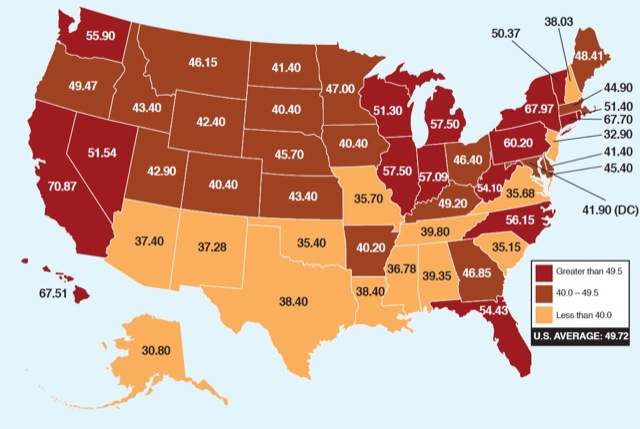Last month, the Eno Center for Transportation proposed to abolish the gas tax, and the Antiplanner panned the idea. This week, the Wall Street Journal proposes abolish the gas tax, and the Antiplanner thinks it may be right.
The difference is that Eno wanted to replace the gas tax with federal transportation spending out of general funds in a deliberate effort to make transportation even more politicized than it is today. The Journal, on the other hand, wants to de-politicize highway spending.
The problem is that the Journal never actually says what it proposes to do instead of the gas tax. Reading between the lines, what the Journal is really proposing is to abolish the federal gas tax, while letting states fund highways out of gas taxes, tolls, mileage-based user fees, or whatever fees work best in each state. Too bad it didn’t bother to make the case for that, or even explain it.








